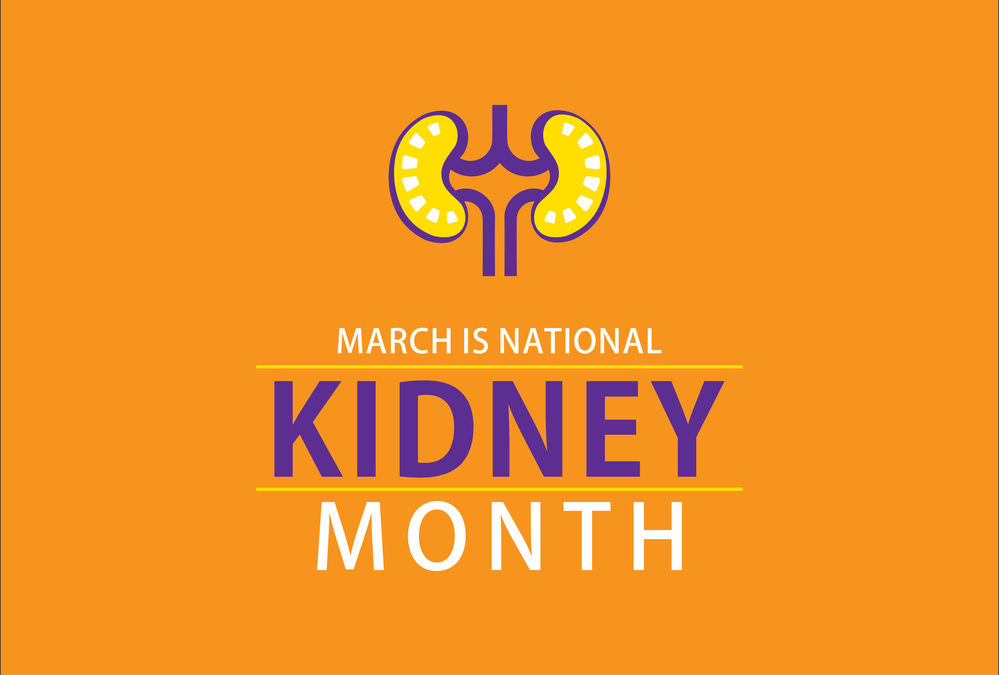Updated October 2024
When’s the last time you gave much thought to your kidneys? If you are among the estimated 10% of people who suffer the excruciating pain of passing kidney stones, you may think of them often. It’s estimated that 37 million people in the United States have chronic kidney disease, but many aren’t even aware that they have it or whether they are at high risk. Risk factors include diabetes, high blood pressure, heart disease, obesity, autoimmune diseases, family history, and being 60 years or older. Take this quick questionnaire to find out if you are one of the 33% of adults in the U.S. who is at risk for kidney disease.
March is National Kidney Month, a good time to learn more about how kidneys work and how we can keep them healthy and prevent problems.
You have two bean-shaped kidneys on either side of your body, just below the rib cage. Both are roughly the size of a fist and they pack a punch when it comes to keeping your body’s processes working smoothly. You can learn more in this excellent explainer about how your kidneys work, see the infographic below, or check out this quick summary of their most important functions from the National Kidney Foundation (NFK).
- Regulate the body’s fluid levels
- Filter wastes and toxins from the blood
- Release a hormone that regulates blood pressure
- Activate vitamin D to maintain healthy bones
- Release the hormone that directs production of red blood cells
- Keep blood minerals in balance (sodium, phosphorus, potassium)
The NKF suggests these 9 steps that everyone should take to maintain kidney health.
- Exercise regularly
- Control weight
- Follow a balanced diet.
- Quit smoking
- Drink only in moderation
- Stay hydrated.
- Monitor cholesterol levels
- Get an annual physical
- Know your family medical history

Related prior posts

